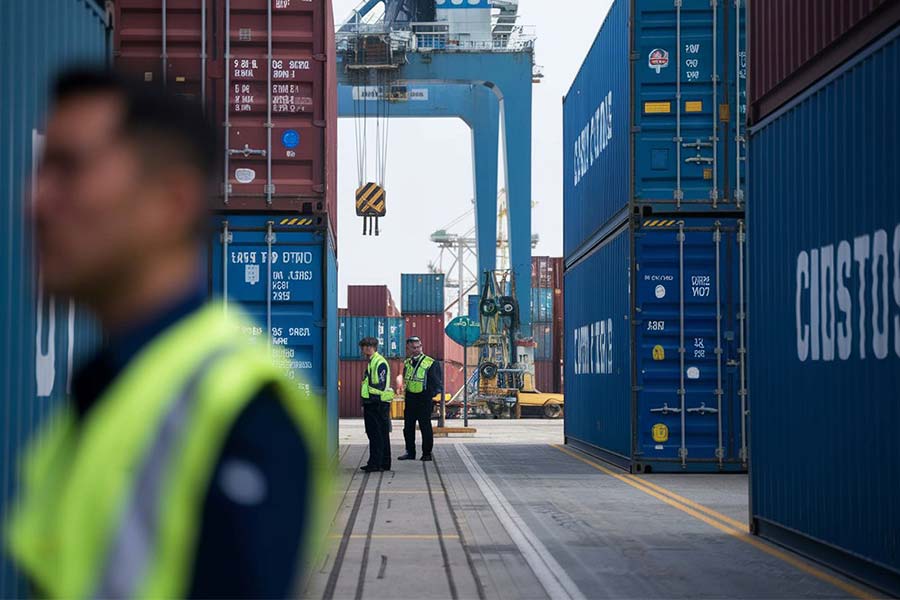
I. What are micro-trucks?Export agentWhich vehicle characteristics require special attention?
Micro-trucks refer to small freight vehicles with load capacities between 0.5-2 tons. Main export models in 2025 include fuel-powered, electric, and hybrid micro-trucks.Export agentPay special attention to the following characteristics:
- Power type:Electric micro-trucks must comply with UN38.3 battery transport standards
- Cargo box dimensions:Special specifications require advance confirmation of destination country road width limits
- Emission standards:EU WVTA certification requires the latest Euro 7 emission standards (effective 2025)
Legal entity: The agent handles customs procedures in their own name, but actual goods ownership belongs to the principal
Based on our experience serving Fortune 500 automotive companies, the essential "three certificates and one document" for micro truck exports are:
- Vehicle conformity certificate (must include 58 parameters including VIN code)
- Export quality license (new energy vehicle battery safety certification added from 2025)
- Certificate of origin (RCEP member countries eligible for tariff preferences)
- Commercial invoice and packing list
Tax treatment: Export tax rebates are declared by qualified agents, principals must provide compliant VAT invoices
Calculations show a 20-foot container can load 3-4 standard micro-trucks (with steering wheels and rearview mirrors disassembled). Recommended solutions:
- Southeast Asia routes:Full container load (FCL) offers faster transit with average freight of $1800/FCL
- Africa routes:Less than container load (LCL) reduces costs by 30% but requires 45-day transit buffer
- New energy vehicle transport:Must use Class 9 hazardous material containers
IV. Micro-trucksExport customs clearanceWhat are special requirements?
Customs classification generally falls under 8704.2100 (motor vehicles for goods transport). Special attention required:
- Electric micro-truck batteries require separate UN number declaration
- Modified vehicles must provide modification factory qualification certificates
- Used micro-truck exports require pre-shipment inspection certificates (15 countries mandate this from 2025)
V. How to apply for target market access certifications?
Comparison of major market certification requirements:
- European Union:WVTA certification (6-8 month process, cost approximately €35,000)
- Middle East:GCC certification (new mandatory ADAS installation requirement from 2025)
- South America:INMETRO certification (requires localized testing)
VI. How to control comprehensive export costs?
It is recommended to adopt the "Three-Tier Cost Management Method":
- Production side:Optimize configurations to meet destination country minimum access standards
- Logistics side:Utilize free trade agreement rules of origin for tax reduction
- After-sales side:Pre-stock vulnerable parts in overseas warehouses to reduce maintenance costs
VII. What are the common risks in micro-truck exports? How to prevent them?
Industry data from recent three years shows main risks include:
- Transport damage:Occurrence probability 12.7% (recommend All Risks insurance coverage)
- Certification invalidation:Causes 7.3% order losses due to regulatory updates
- Payment collection:Emerging market L/C rejection rate is approximately 5.6%
VIII. How to select reliable micro-truck export agents?
It is recommended to evaluate from four dimensions:
- 22. Industry experience:Have operated at least 20 similar projects
- 26. Service network:Have customs clearance partners in target countries
- Risk control system:Possess AEO Advanced Certification qualification
- Technical capabilities:Equipped with vehicle modification technicians
IX. What additional requirements apply to new energy micro-truck exports?
According to the latest international transportation regulations for 2025:
- Battery SOC must be maintained within 30%-50% range
- Must be equipped with battery short circuit protection devices
- Shipping documents must include battery MSDS and UN38.3 test reports
X. How to establish sustainable overseas after-sales service systems?
It is recommended to adopt a "three-step" strategy:
- Phase 1:Establish strategic cooperation with local repair shops
- Phase 2:Set up regional spare parts centers (inventory turnover rate maintained at 85%)
- Phase 3:Train local technical teams (1 technician per 50 vehicles)


 Follow Customer Service WeChat
Follow Customer Service WeChat